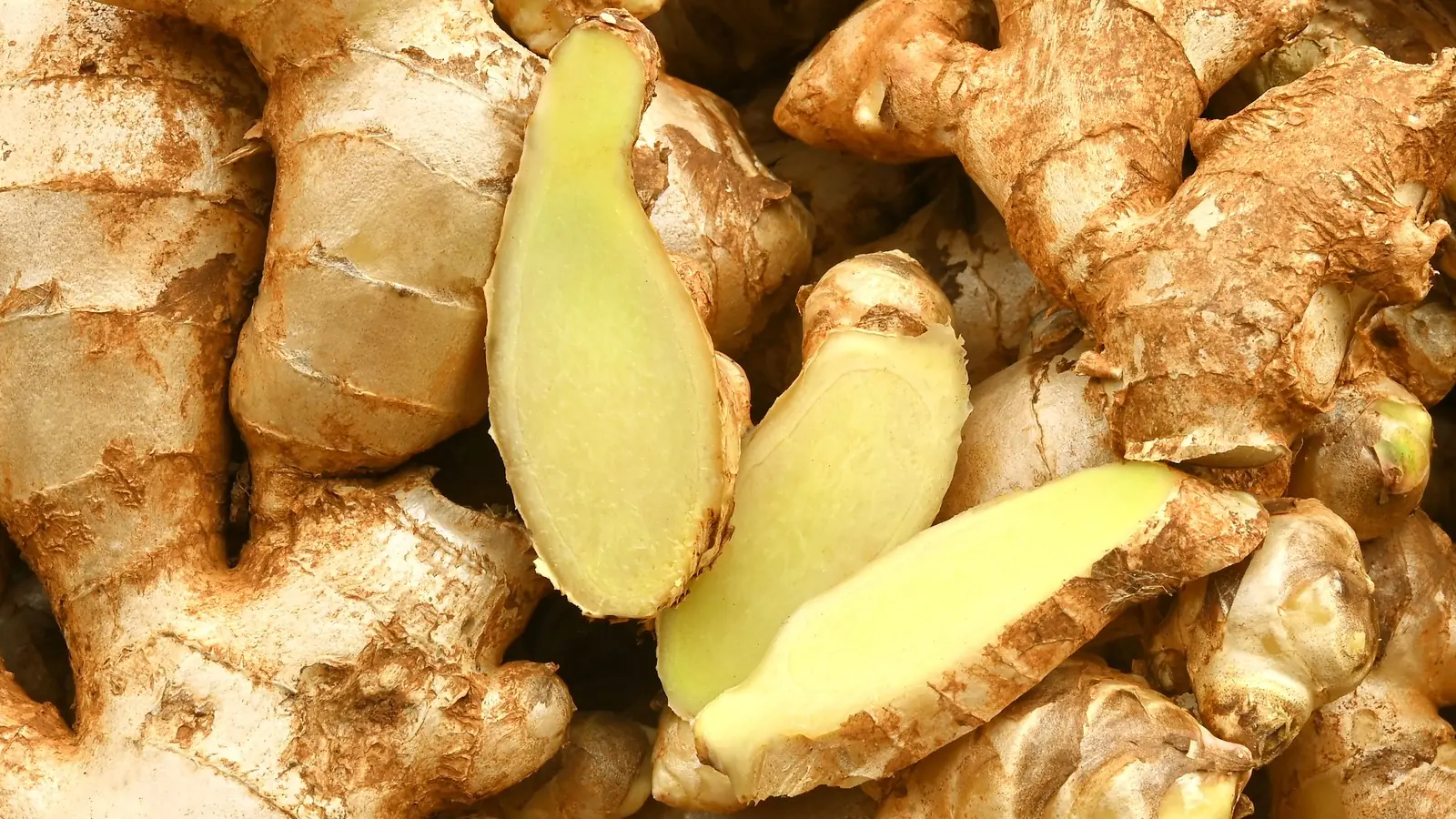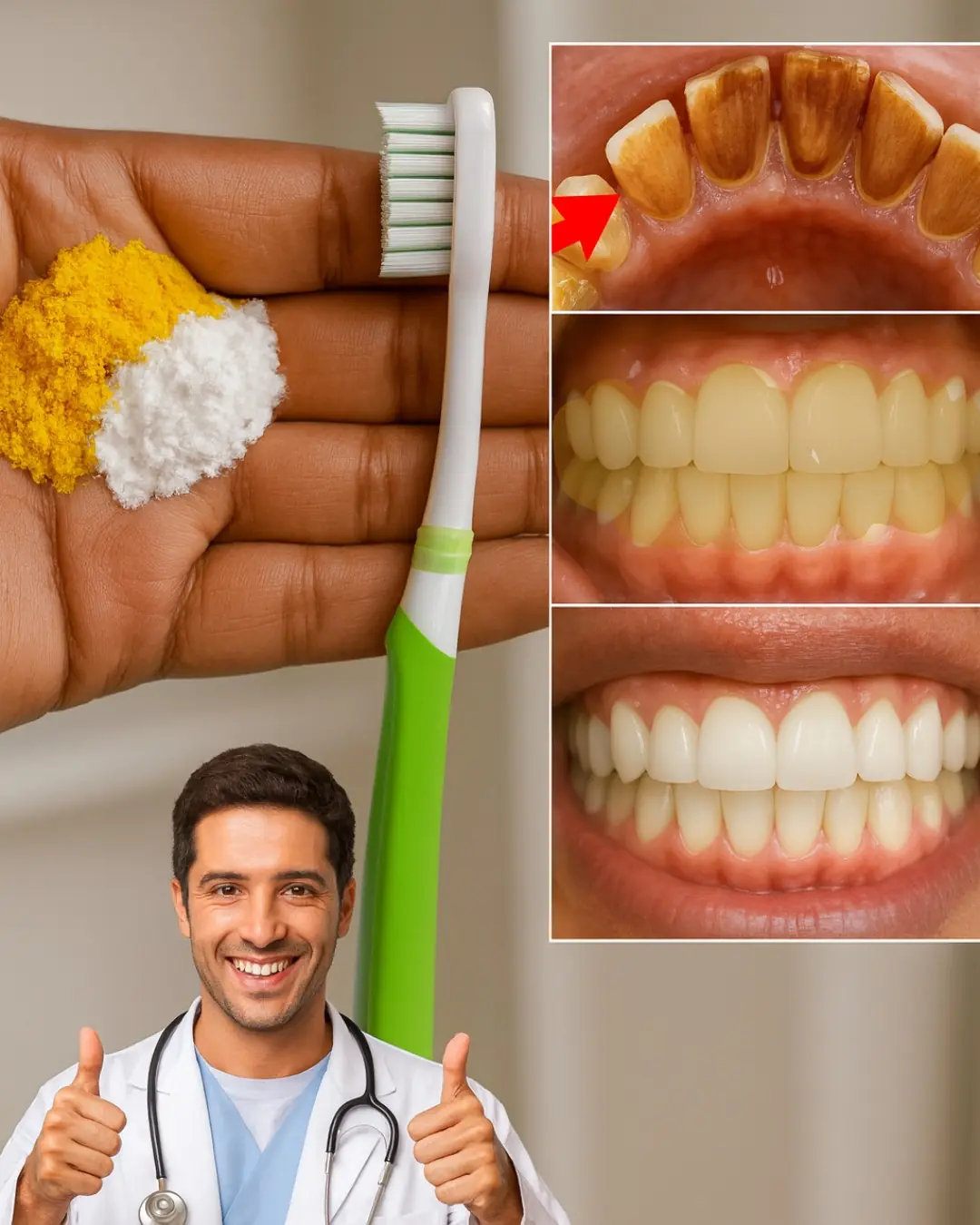
Avoid Ginger If You Have THESE Health Problems
Ginger is widely praised for its anti-inflammatory, digestive, and immune-boosting benefits. Many people add it to meals, smoothies, or teas—especially when fighting off colds or trying to soothe nausea.
But despite its reputation as a “super herb,” ginger isn’t suitable for everyone.
Certain medical conditions can actually become worse when ginger is consumed in large amounts or paired with specific medications.
Below, you’ll find the key situations where ginger should be limited—or avoided entirely.
Key Points to Know
-
Ginger naturally thins the blood, which can be dangerous for people with bleeding disorders or those on medications like warfarin, aspirin, or other anticoagulants.
-
It lowers blood sugar, so people with diabetes may experience unexpected hypoglycemia.
-
Ginger stimulates bile production, which can worsen gallbladder issues such as gallstones.
-
Those with heart conditions must be cautious because ginger can increase heart rate and interact with cardiac medications.
-
Ginger should be stopped at least a week before surgery due to bleeding and blood sugar–lowering effects.
When You Should Avoid Ginger
1. Bleeding Disorders
Ginger contains active compounds with strong antiplatelet and anticoagulant effects.
This means it can slow or disrupt your body’s ability to form clots—dangerous for anyone with hemophilia, Von Willebrand disease, or similar conditions.
People taking blood thinners must also use caution.
Even small daily doses of ginger may amplify medication effects and increase bleeding risk.
What to do:
Always speak with a healthcare professional before consuming ginger if you’re on antiplatelet or anticoagulant therapy.
2. Diabetes
For those with diabetes, ginger is a double-edged sword.
While it can help digestion, it may also dramatically lower blood sugar.
This can cause:
-
dizziness
-
weakness
-
fainting
-
difficulty stabilizing glucose levels
If you're taking insulin or oral diabetes medications, ginger can make blood sugar drop too far, too fast.
Tip:
Monitor glucose closely if adding ginger to your diet, and discuss it with your doctor first.
3. Gallbladder Problems (Especially Gallstones)
Ginger stimulates bile production—usually helpful for digestion.
But for people with gallstones or gallbladder inflammation, extra bile flow may worsen pain or trigger spasms.
If you experience discomfort after eating fatty meals, ginger may intensify symptoms.
4. Heart Conditions
Ginger boosts circulation, which for some people is beneficial—but not if you have heart issues.
Potential risks include:
-
elevated heart rate
-
interference with heart medications
-
increased risk of irregular heartbeat in sensitive individuals
And because ginger thins the blood, it may also overly enhance the effects of cardiac drugs.
5. Medication Interactions
Blood Thinners
Ginger can intensify the effect of medications like:
-
Warfarin
-
Aspirin
-
Clopidogrel
This increases the likelihood of bruising, bleeding gums, nosebleeds, and internal bleeding.
High Blood Pressure or Diabetes Medications
Ginger’s natural ability to lower blood sugar and blood pressure can:
-
make hypertension meds too strong
-
push blood sugar dangerously low
-
cause dizziness or fainting
Always consult a doctor when mixing ginger with prescription treatments.
6. Being Underweight
Ginger may suppress appetite, making it harder for underweight individuals to reach calorie goals.
Frequent nausea or reduced hunger can worsen existing nutritional deficiencies.
A healthcare provider can suggest safer herbal alternatives if appetite stimulation is your priority.
7. Pregnancy
Although many women use ginger for morning sickness, high doses are risky.
Possible dangers include:
-
increased miscarriage risk (especially during the first trimester)
-
excessive bleeding due to blood-thinning
-
potential interactions with pregnancy-related medications
If pregnant, avoid concentrated ginger supplements and consult your doctor about safe doses.
8. Low Blood Pressure
Ginger relaxes blood vessels, which can push already-low blood pressure even lower.
This may cause:
-
lightheadedness
-
fainting
-
weakness
If you often experience low blood pressure, monitor your reaction carefully or avoid ginger altogether.
9. Before Surgery
Ginger should be stopped at least 7–10 days before surgery.
It can:
-
increase bleeding
-
interfere with anesthesia
-
affect blood sugar control during and after the operation
Your doctor will likely tell you to avoid all herbs with anticoagulant effects—including ginger.
FAQs

1. Can ginger worsen acid reflux?
Yes. Ginger may relax the lower esophageal sphincter, causing more stomach acid to rise.
2. Can ginger supplements conflict with medications?
Yes—particularly with blood thinners, diabetes drugs, heart medications, and chemotherapy treatments.
3. Can I use ginger for weight loss while on medication?
Use caution. Ginger may interfere with medications for high blood pressure, blood sugar, and heart rhythm.
4. Is topical ginger safe during pregnancy?
Consult a doctor. There isn’t enough evidence to confirm safety for all pregnant individuals.
5. Can ginger trigger migraines or worsen arthritis symptoms?
Some people may experience interactions with medications taken for migraines or inflammatory conditions.
Final Thoughts
Ginger is powerful—but powerful doesn’t always mean safe for everyone.
If you’re managing chronic health issues or taking prescription medications, it’s essential to understand how ginger affects your body.
With the right guidance, most people can still enjoy ginger in safe amounts. But for others, choosing alternative herbs or remedies may be the wiser choice.
News in the same category


Never Toss Banana Peels Again: The 2,000-Year-Old “Trash” Trick That Erases Wrinkles, Heals Scars, Whitens Teeth & Drops Blood Pressure Overnight

The $5 Kitchen Secret: Why You Should Be Brushing Your Teeth with Turmeric and Baking Soda

This carb is more damaging to your blood sugar than pure sugar

A neurosurgeon says your legs could predict dementia years before memory loss

Top 10 Foods to Heal Knee Pain and Rebuild Cartilage Naturally

The step-by-step plan to drop 30 pounds quickly in 2025

Got High Blood Pressure? Try This 2-Ingredient Tea!

The Best Natural Remedies to Treat and Prevent Varicose Veins Effectively

People Who Do This Every Morning Have Better Circulation and More Energy

12 warning signs of poor circulation in your legs.

Treating Nail Fungus Naturally

7 ways to protect your heart during the winter months

Unexplained Bruising on Your Body: Causes and Treatments

Coconut water: Is It Good for You, Nutrition, Benefits, Side Effects (Science Based)

Lose just 1 gram of fat in your pancreas – and your diabetes may reverse, study finds

Doctors warn about 7 overlooked prostate cancer signs you should never ignore

The best way to lower blood pressure fast!
News Post

When a Woman Bites Her Lip While Staring at You, It Means She Is ...

Have you noticed small white spots on your arms or legs… and you don't know what they are?

4 Best Clove Toners for Beautiful Skin

How Europe Says "Street": A Multilingual Journey Through Language and Culture

Never Toss Banana Peels Again: The 2,000-Year-Old “Trash” Trick That Erases Wrinkles, Heals Scars, Whitens Teeth & Drops Blood Pressure Overnight

A New Dawn for Chronic Kidney Disease Treatment: From Management to Possible Remission

A Butterfly, A Flute, and Unshakable Composure: The Legendary Performance of Yukie Ota

The $5 Kitchen Secret: Why You Should Be Brushing Your Teeth with Turmeric and Baking Soda

Felix Baumgartner's Record-Breaking Jump: Breaking the Sound Barrier from Space

A Pacemaker the Size of a Grain of Rice: Revolutionizing Heart Care

Denmark’s Ground‑Breaking Proposal: Granting Citizens Copyright Over Their Face, Voice and Body to Combat Deepfakes

10 DIY Beauty Ice Cubes for Radiant, Glowing Skin

This carb is more damaging to your blood sugar than pure sugar

A neurosurgeon says your legs could predict dementia years before memory loss

Science vs. Disney: What Finding Nemo Didn’t Tell You About Clownfish

U.S. Grocery Costs Hit Record High: Families Now Spending Over $1,000 a Month

When Mating Turns Dangerous: The Fierce Behavior of the Sydney Octopus

Welcome to the Monkey Madness: Thailand’s Unforgettable Lopburi Buffet

Why Height Matters So Much in Online Dating — And What the Numbers Reveal
